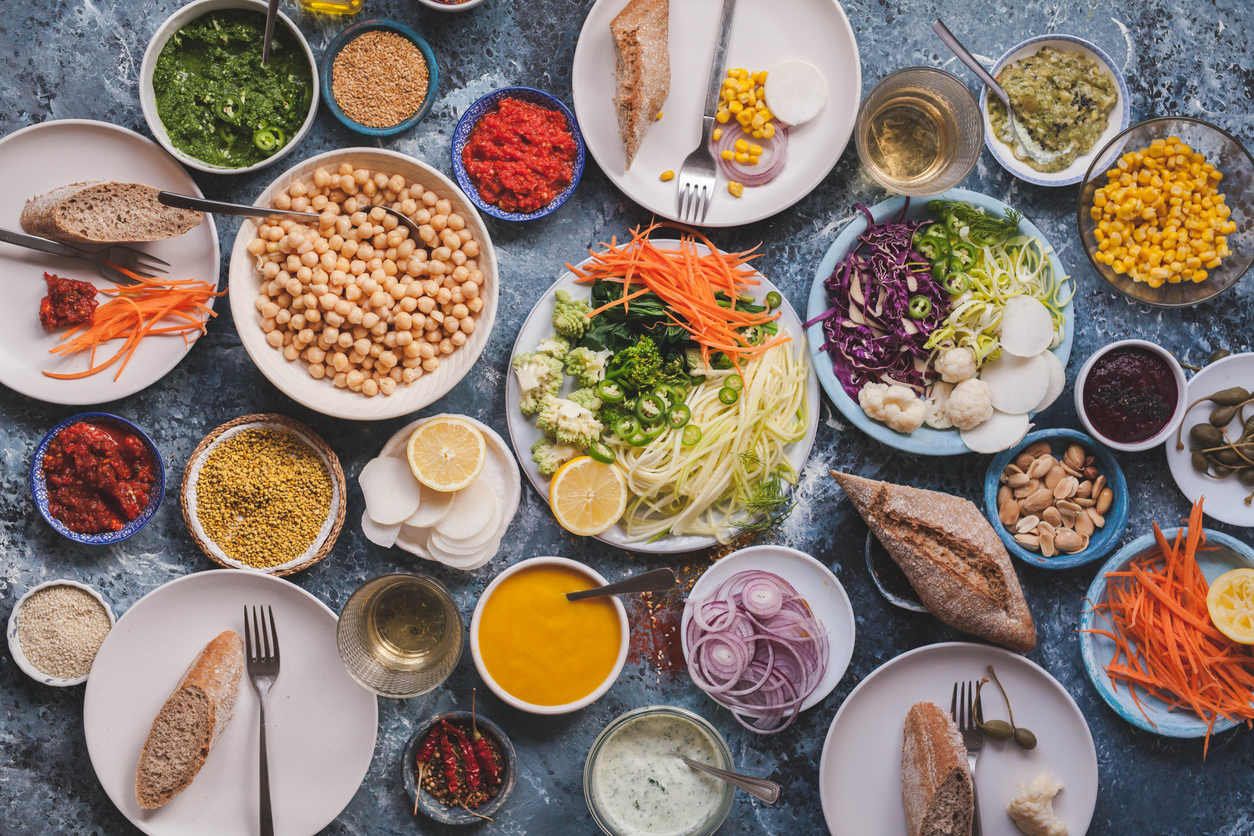Unveiling the Secrets of Mediterranean Cuisine
Mediterranean cuisine is renowned worldwide for its vibrant flavors, fresh ingredients, and health benefits. Let's delve into the main components that make this culinary tradition so unique and enticing.

1. Fresh and Flavorful Vegetables
At the heart of Mediterranean cuisine are fresh and vibrant vegetables. From ripe tomatoes and crisp cucumbers to bell peppers and eggplants, the region's bounty of produce forms the foundation of many iconic dishes. These vegetables are often grilled, roasted, or sautéed to enhance their natural flavors and textures, adding a burst of color and nutrients to every meal.
2. Olive Oil: Liquid Gold of the Mediterranean
Olive oil is not just a cooking ingredient in Mediterranean cuisine; it's a way of life. Renowned for its rich flavor and numerous health benefits, olive oil is used generously in Mediterranean cooking. Whether drizzled over salads, used for sautéing vegetables, or incorporated into marinades and dressings, this golden elixir adds depth and richness to dishes while promoting heart health and longevity.
3. Fresh Herbs and Spices
Mediterranean cuisine is celebrated for its bold and aromatic flavors, thanks in large part to the abundant use of fresh herbs and spices. From fragrant basil and oregano to zesty garlic and tangy lemon zest, these flavorful additions elevate dishes to new heights, tantalizing the taste buds with every bite. Whether sprinkled over grilled seafood, stirred into hearty stews, or used to season meats and vegetables, herbs and spices are essential elements of Mediterranean cooking.
4. Wholesome Grains and Legumes
Grains and legumes are staple foods in Mediterranean cuisine, providing a hearty and nutritious base for many traditional dishes. From couscous and bulgur to chickpeas and lentils, these ingredients are rich in fiber, protein, and essential nutrients, making them both satisfying and nourishing. Whether enjoyed in salads, soups, or pilafs, grains and legumes add depth and complexity to Mediterranean meals, offering a satisfying blend of flavors and textures.
5. Fresh Seafood and Lean Proteins
Given its proximity to the Mediterranean Sea, it's no surprise that seafood features prominently in Mediterranean cuisine. From succulent shrimp and tender octopus to flaky white fish and briny mussels, the region's abundant waters offer a bounty of fresh and flavorful options. Seafood is often grilled, roasted, or poached to preserve its natural taste and texture, creating dishes that are both light and satisfying. Additionally, lean proteins such as poultry, lamb, and yogurt-based sauces are also common in Mediterranean cooking, providing a balanced and wholesome approach to mealtime.
6. Artisanal Cheeses and Dairy
No Mediterranean meal is complete without a selection of artisanal cheeses and dairy products. From creamy feta and tangy goat cheese to rich Greek yogurt and velvety ricotta, the region offers a diverse array of dairy delights. These cheeses and dairy products are not only delicious on their own but also add richness and depth to a wide range of dishes, from savory pies and pastries to creamy dips and sauces.
In Conclusion
Mediterranean cuisine is a celebration of fresh ingredients, vibrant flavors, and wholesome cooking techniques. By embracing the main components of this culinary tradition – from fresh vegetables and olive oil to herbs, spices, and seafood – you can embark on a culinary journey that delights the senses and nourishes the body. So, why not bring a taste of the Mediterranean into your kitchen today and savor the delicious flavors of this timeless culinary tradition?
Created by: Zak Efron
